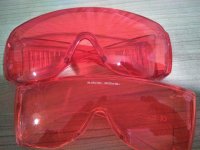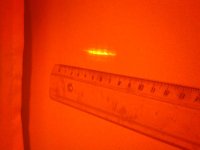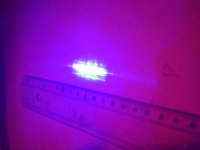The most certain way to test them, and this only works once, is to wear them whilst doing your experiments. If you permanently go blind, then you know 100% for sure that the glasses didn't work.
There are lots of other much much safer ways to test, but no test is 100% accurate. I'd recommend using an LPM and using the actual laser source you are using, but again, if you don't have good glasses to use that source, it sort of leaves you in a pickle.
If you have a lower power laser light source that you know for sure is the same wavelength, you could shine it on a neutral wall and then test whether you can see the reflected dot with the glasses on. If so, then odds are high that the glasses won't protect you. There is a chance that the wall could be fluorescent at that wavelength, though, but, if it is, there is also a chance that other test objects might do the same and provide another form of optical hazard. But anyway, assuming that you cannot see the light reflected off of the wall from a <5mW source, you could use one pair of the glasses to test the other pair with the LPM and intended source. There'd still be a risk, but you are mitigating your risk. I mean, there is always some danger when using a high powered laser, even if you wear the best glasses, since the glasses could break or fall of your head or light could come in through a gap or you could trip and fall down and land on a pile of knives, who knows. The point of safety glasses is not to offer you 100% protection from danger, it is to mitigate the danger the best way possible.







